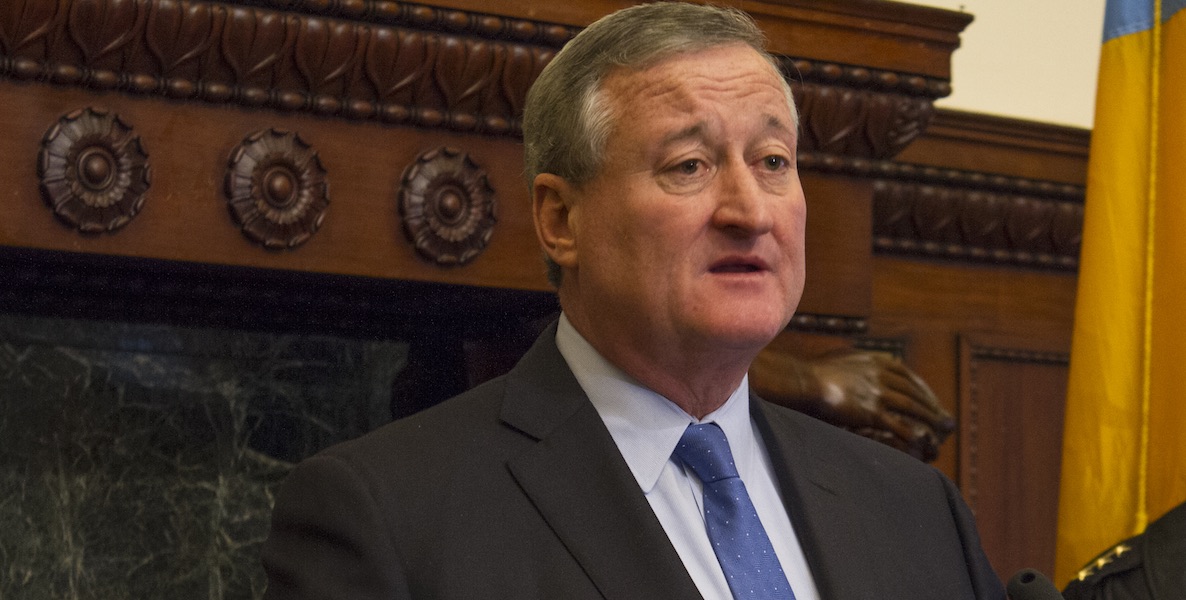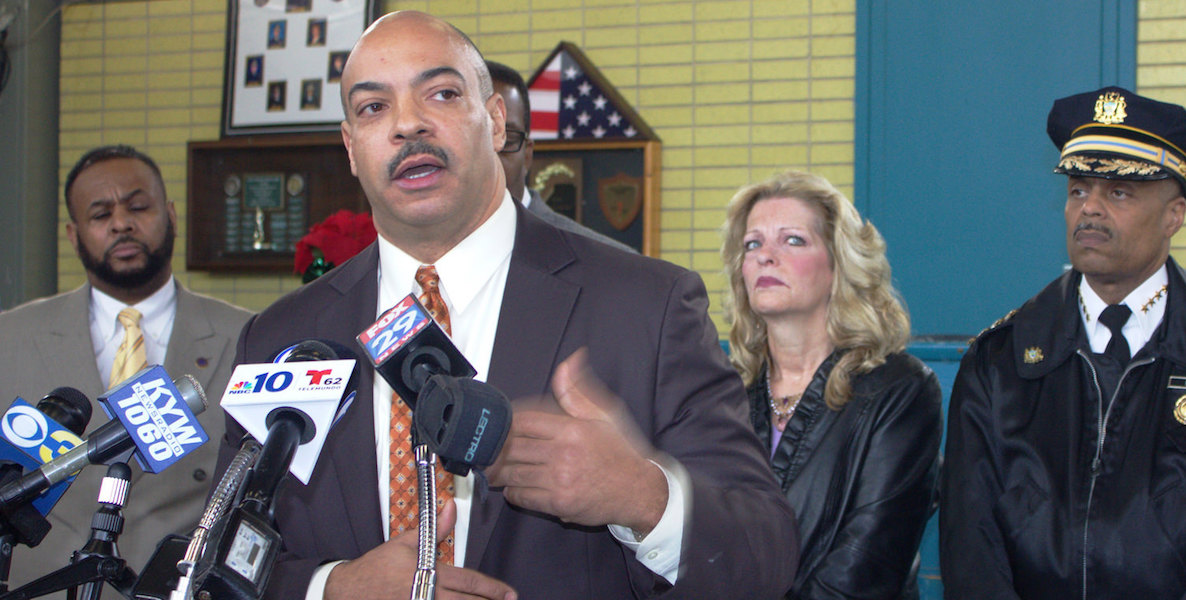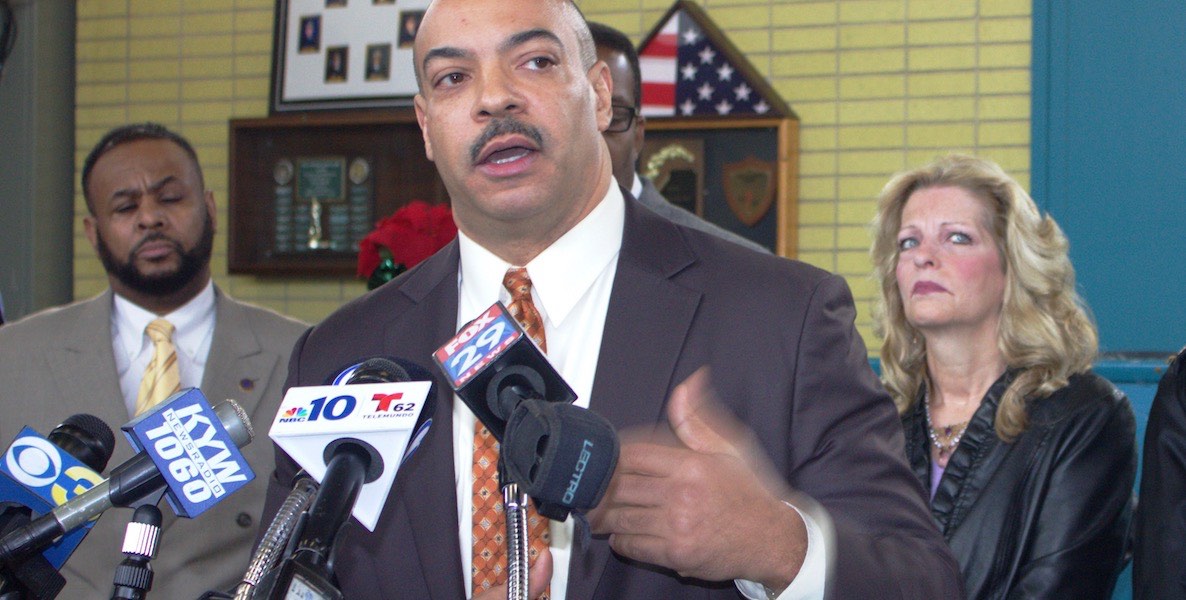I’m a big fan of epic exit lines. Oscar Wilde, on his deathbed, is said to have looked at the wall and said: “This wallpaper will be the death of me—one of us will have to go.” Then there was the likely apocryphal Death Row inmate, who, when asked for final words before his execution, said, “I guess this’ll teach me a lesson.” And, of course, who could forget the late Philly comedian David Brenner, who once told me that his father, just prior to expiring in his hospital bed, set his eyes on the bed pan on the table next to him. “What a great view,” were his final words.
If you’re going to go out, may as well drop the mic, right? Well, I have to cop to a sort of grudging admiration for our embattled District Attorney, who, in announcing last week that he wouldn’t seek reelection, said something we too seldom hear from those who are accused of public malfeasance. It was one word, but if it could catch on…well, it could change our moribund political culture. The word? Shame.
“So my decision to accept gifts and fail to report them brought much embarrassment, shame and adverse publicity to me and, unfortunately, to the office for which I love,” Seth Williams said, choking up, before the media last week. “For this I will always have deep regret in my heart. My poor judgment caused distractions which made the already difficult job of my assistants and critical staff even more challenging and raised doubts in the minds of some citizens regarding my character and my fitness to serve as your District Attorney.”
The headlines were predictable, and much needed. Williams: I Brought Shame To The Office. You know the allegations by now: the non-disclosure of some $160,000 in gifts, including a $45,000 roof, Key West vacations courtesy of a defense lawyer who represents clients facing charges brought by Williams’ office, and $6,000 in gifts from a Common Pleas judge who ascended to the bench because Williams had “vouched for him.”
Williams continues to be under FBI investigation. His fall was abrupt, with elements of tragedy; I first met him in 2008, and was struck by the “yes, we can” spirit of this young lawyer who had packed his then-wife and kids into the car and driven to Springfield, Illinois to see Senator Barack Obama announce his longshot candidacy for president. One can only surmise that inexperience and hubris have had much to do with his rapid descent.
I have to cop to a sort of grudging admiration for Williams, who, in announcing that he wouldn’t seek reelection, said something we too seldom hear from those who are accused of public malfeasance. It was one word, but if it could catch on…well, it could change our moribund political culture. The word? Shame.
Last Friday, there were hints of a sneering antagonist behind Williams’ apology, as when he complained, Nixon-like, about constant media questioning of his transgressions. But here’s hoping he’s sufficiently humbled. Acknowledging that he brought shame to the office is a good start.
It’s not something we’ve heard from others who have gone the lawmaker-to-perp walker route, like Chaka Fattah, who had the gumption to allege that the Obama Justice Department was out to get him, or former State Rep. Leslie Acosta, who wins the chutzpah prize for running for office (and winning) knowing that she’d already secretly pled guilty to a felony count of conspiracy to commit money laundering. Or how about the recent acquittal of State Senator Larry Farnese, for using $6,000 in campaign money to pay the tuition for a study abroad program for the daughter of a committee person whose vote he sought in a ward election. The jury may indeed have gotten the case right on the merits of the law…but Farnese’s defense smacked of the type of shamelessness that has long characterized our purely transactional politics: That the $6,000 was nothing more than constituent service. “This was Sen. Farnese doing what he does best—helping others,” said Farnese’s lawyer, Mark Sheppard.
But, hey, we enable this kind of shamelessness, because we’ve romanticized our corrupt and contented culture. It’s part of our character and many of us—mea culpa—have winked and nodded, trying to hide our smiles, when bad actors dance across our public stage. I thought it was awesome—so Philly!—when former State Senator Buddy Cianfrani said about special prosecutor Walter Phillips in 1975, “If he can’t get anything on me, what kind of an investigator is he?” You had to love ol’ Buddy, who finally went away after being indicted on 110 counts of racketeering, mail fraud, obstruction of justice and tax fraud. And when he came out? He went right back to running South Philly. He was a shameless rogue. “I’m going to steal every vote I can,” he once said. “I’m going to buy every vote I can. That’s the kind of guy I am.” He mentored Vince Fumo, who once told me, with a hint of affection and admiration, “I learned from Buddy by being fucked by Buddy.”
When then-City Councilman Jimmy Tayoun spent 40 months in prison in the early ‘90s for many of the same offenses Cianfrani got nabbed for, (there’s basically a playbook), what did he do? He wrote Going To Prison, a guidebook for first time offenders: “Bring a good amount of cash if you can. You’ll see why as you read on,” he writes.
Or, more recently, how about State Senator LeAnna Washington, who berated her chief of staff when he questioned her use of staffers doing political work on the taxpayer dime: “I am the fucking Senator, I do what the fuck I want, and ain’t nobody going to change me,” she said.
Such brazenness extends back to Republican Mayor Samuel Ashbridge, whose reign of ethical terror ran from 1899 to 1903. In his book The Shame Of The Cities, Lincoln Steffens quotes former Postmaster Thomas L. Hicks:
“At one of the early interviews I had with the mayor in his office, he said to me: ‘Tom, I have been elected mayor of Philadelphia. I have four years to serve. I have no further ambitions. I want no other office when I am out of this one, and I shall get out of this office all there is in it for Samuel H. Ashbridge.’ I remarked that this was a very foolish thing to say. ‘Think how that could be construed,’ I said.
‘I don’t care anything about that,’ he declared. ‘I mean to get out of this office everything there is in it for me.’”
Steffens goes on to point out that, upon taking office, Ashbridge was $40,000 in debt…but:
When he retired from office, he became the president of a bank and was reputed to be rich. Here is the summary published by the Municipal League at the close of his labors: ‘The four years of the Ashbridge administration have passed into history, leaving behind them a scar on the fame and reputation of our city which will be a long time healing. Never before, and let us hope never again, will there be such brazen defiance of public opinion, such flagrant disregard of public interest, such abuse of powers and responsibilities for private ends.’
The more things change, huh? No wonder Williams’ statement struck me as so out of our tradition. Here at The Citizen, we’re always looking for solutions, so in the past, I’ve married the litany of perp walks and ethical transgressions that dominate our headlines with innovations like the Netherlands Court of Audit, akin to our Congressional Budget Office, which tries to promote integrity in government rather than just punish corrupt politicians. Or there’s Transparency International, which publishes a Local Integrity Systems Assessment Toolkit that explains how they work with local governments and civic partners to bolster integrity.
How do you change a culture? Maybe it starts with a truly repentant District Attorney, rather than slinking off into private practice, leading an effort to clean up the political system he brought shame upon.
But the oddity of hearing a local politician admit he brought shame upon his office has me thinking that change will not come from an outside audit, a toolkit, or even new ethics laws. You can pass all the ethics edicts you want. No, we have a cultural problem on our hands. And that’s worth breaking down. Because ours is a unique brand of political corruption. Other places—Chicago comes to mind—mostly feature good, old-fashioned graft. Cash in envelopes, public officials on the take.
Here, there’s systemic corruption. Here, we have a local government addicted to the deal, motivated by a lust not for more greenbacks but for more power, often in direct contradiction of the common good. We’ll see what the investigation reveals, but it seems that Williams’ missteps were more the former than the latter.
Our type of corruption is harder to combat, because it is so deeply cultural and, as the Farnese trial shows, sometimes it may not even be technically illegal. But it’s corrosive nonetheless. So how do you change a culture? Maybe it starts with a truly repentant District Attorney, rather than slinking off into private practice, leading an effort to clean up the political system he brought shame upon.
Header photo courtesy of Philadelphia City Council via Flickr






